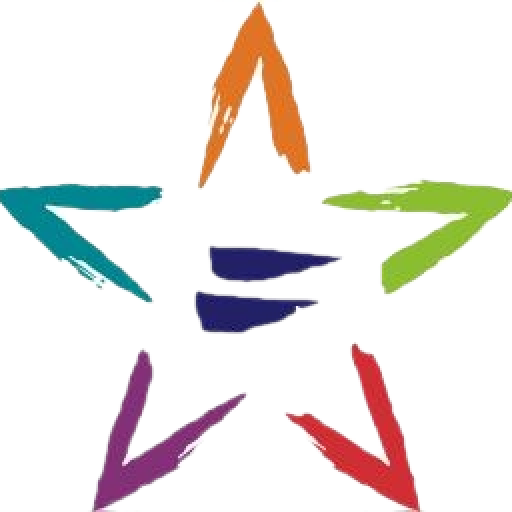My name is Samati Niyomchai. I am many things: Thai, American, Buddhist, male, a social worker, a talented cook, a dog owner, a runner, an avid Star Trek fan, a New Yorker, coffee addict, a published writer…
I am also bisexual. I’ve been out for what feels like a life time. And this part of who I am has presented one of the biggest challenges, not for me, but for everyone else.
I have been told by gays, lesbians and straight people that this part of who I am does not exist in more ways that I can count: people don’t “believe in” bisexuality as an orientation, it’s a phase, bisexual men aren’t really bisexual, or, one time, they do not “believe” that I am bisexual.
Despite not being a “real” identity to some, the oppression bisexual people experience is very, very real. Yes, if we are in a same-sex relationship, we experience homophobia and heterosexist oppression. And we are at risk for employment and housing discrimination in most of the United States. However biphobia and monosexism have their own different effects which deserve acknowledgement.
Gays, lesbians and straight people have asked about my sexual history and if it doesn’t meet the expectations of the person asking, my own understanding of my sexual orientation is denied. Similarly, when I am asked for my preference (usually between men and women, as if that’s all there are) and it’s never about a preference I may or may not have, but it’s really about putting me in a box of gay or straight. Gays, lesbians, and straight people assume that since I date people of various genders, not just the opposite or the same, that I have access to more sexual and romantic partners.
I have experienced sexual harassment because I am bisexual. Straight men have felt like they have my consent to touch me inappropriately because I’m bi. Coworkers, gay, lesbian and straight, felt it is perfectly acceptable to make derogatory, and frankly, presumptive, comments about my sex life both to my face and behind my back. My experiences in the professional realm unfortunately are not unique to me nor are they simply anecdotal.
According to a report by the Movement Advancement Project, more than half of all bisexual people hear anti-bisexual jokes, or experience harassment in the workplace. We face worse physical and mental health outcomes than lesbian and gay people. We are twice as likely to consider or attempt suicide as gays and lesbians. We are more likely to experience physical, emotional, and sexual violence at the hands of a partner than lesbians and gays. We even get paid less or are denied promotions for the same job as equally skilled lesbians and gays. These are the results of biphobia and monosexism and they must be addressed.
It is disappointing how when bisexual people, much like the transgender people, want a seat at the table for “LGBT” equality, we are asked to not “detract” from the equality of lesbians and gays, despite our experiences of discrimination and violence. Many LGBT organizations talk about “equality for all” or “safe space” for all, but that promise can be in name only. According to the Williams Institute at UCLA, more than half of the LGBT community identifies as bisexual, but little outreach or programming is done specifically for bisexual people. When people say “gay community” or “gay marriage” or “gay pride,” we are left out, we are erased, and erased are those of us that have been here since the beginning.
The Stonewall Riots, an event which we commemorate during Pride events worldwide, were led by transgender people of color who were tired of being brutalized by police. One year later, Brenda Howard, a bisexual woman, came up with the idea of commemorating the event with a march, and a week-long celebration, of the LGBT community. Pride was a bisexual woman’s idea.
It is demeaning when we are told that bisexuality is “just a phase” or that we should “pick one,” when it is presumed we are promiscuous, and then labeled negatively because of this presumed promiscuity, when we are presumed to be incapable of monogamy and therefore reprehensible, when we are told our sexual and romantic attractions are not real, when our sexual history is “demanded” to prove our bisexuality, when we are the punchline of jokes, when merely mentioning the word “bisexual” makes people laugh.
And maybe it is a phase for some of us, because for some, being straight, gay, lesbian, man, woman, or gender nonconforming is a phase too. And some of us are promiscuous, even polyamorous, but so are lots of gays, lesbians and straight people; the judgement is unwarranted. Some of us may have had only relationships with one gender, or maybe none; it does not delegitimize our identity.
How often are gays and lesbians told they are “just a phase”? How often are gay men stereotyped, and then shamed, for being promiscuous? How often are women shamed for being sexually active? How often are gays and lesbians scrutinized for their sexual history? How often are gays and lesbians treated as jokes? Straight allies, gays and lesbians move quickly to defend gays and lesbians from this type of offensive and dehumanizing judgement and demand respect. Bisexuals deserve the same.
My name is Samati Niyomchai. I am bisexual. I am here. I am real. And more importantly, I am not alone.
